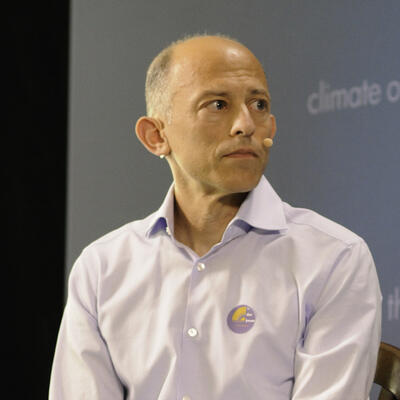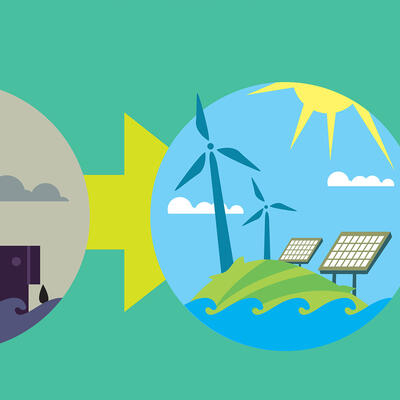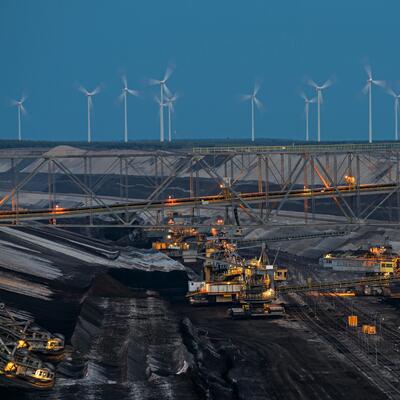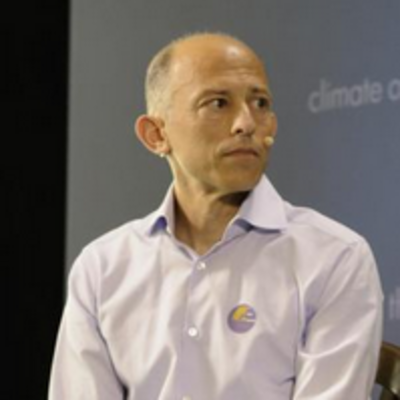
REWIND: Earning Green
Guests
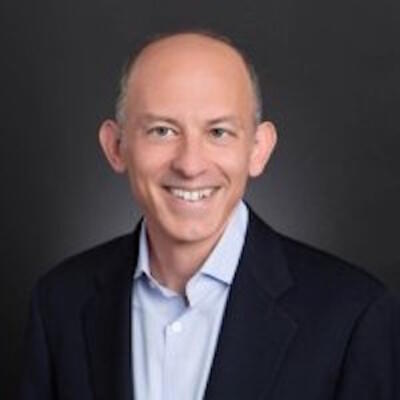
Leonard Adler
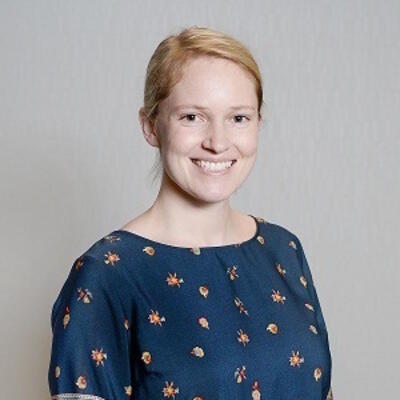
Charlotte MacAusland
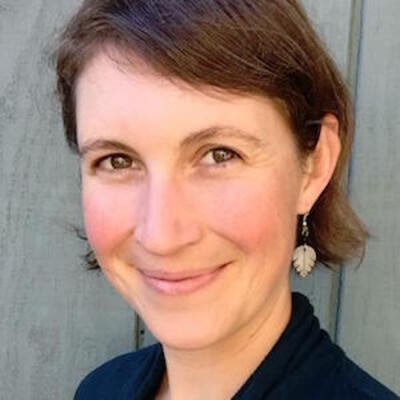
Lyrica McTiernan
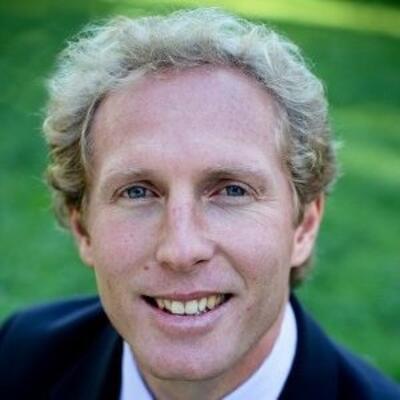
Keely Wachs
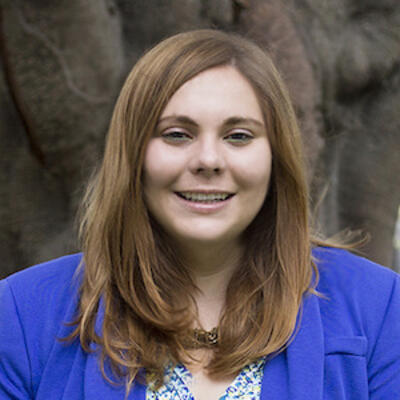
Katherine Walsh
Summary
We will discuss the hot prospects for building a climate-conscious career. New jobs and avenues for advancement are being created as companies strive to grow cleaner and governments figure out what a disrupted climate means for water, food, transit and housing systems. The young Americans entering the workforce today will create the cool new products, technologies and cities that will grow our economy and stabilize the climate. What are the best career paths for people who want to take advantage of that huge opportunity? What sectors are most promising? Will doing good entail making less? A conversation about building a thriving career based on reducing carbon while increasing social and economic value.
Leonard Adler, CEO, Green Jobs Network
Charlotte MacAusland, Commercial Channel Partner Manager, SolarCity
Lyrica McTiernan, Sustainability Manager, Facebook
Keely Wachs, Director of Communications, Clif Bar
Katherine Walsh, Director, Student Environmental Resource Center, UC Berkeley
This program was recorded in front of a live audience at the Commonwealth Club of California on April 23, 2016
Full Transcript
Greg Dalton: From the Commonwealth Club of California this is Climate One. I’m Greg Dalton. What’s one of the brightest spots in the slow and wobbly recovery since the great recession? Look up at the sun, solar in the U.S. solar jobs in the U.S. have more than doubled in five years. There are more people working to get clean power from the sky than getting oil and gas out of the ground. The solar industry added 35,000 jobs in just 2015 and now employs more than 200,000 people according to CNNMoney.
There are many other kinds of jobs in the clean energy economy as well. Large corporations are hiring people to measure and reduce their carbon footprint all the way from their factories to their stores. Architects are busy designing buildings that use little or even net zero energy and water. Food companies are sourcing food locally and working to reduce waste. On the show today we’ll explore careers in the clean energy economy that is growing jobs and reducing carbon pollution. In the second half hour we’ll hear from career advisors about how to get a job in the clean economy and what are the hottest sectors. First, we hear from three young professionals who are climbing the green ladder at fast-growing companies in the Bay Area: Clif Bar, Facebook and Solar City. Keely Wachs is Director of Communications at Clif Bar, Lyrica McTiernan is Sustainability Manager at Facebook and Charlotte MacAusland is Manager at Solar City. Please welcome them to Climate One.
[Applause]
Lyrica McTiernan, let’s begin with you. You grew up in Maine and then came to the Presidio Graduate School, tell us about that journey.
Lyrica McTiernan: Sure, so hi everybody. I grew up on the coast of Maine and love hiking, love being outdoors. I think that's where my passion for sustainability and doing this type of work really started. And went to Oberlin College in Ohio, did an undergraduate degree in environmental studies. And from there did a number of things related to environmental education and green building. Lived in Chicago for a bit; was kind of bouncing around and then ended up here in 2007 where I worked for the Goldman Environmental Prize, that’s a local NGO and I was working on their nomination process and recognizing the amazing work that grassroots environmental leaders do all over the world.
I felt as though I wanted to be contributing more. I was so inspired by all the work these people were doing. And for me, I think that meant getting a few more tools in my tool belt, so I decided to go to business school. So I went to Presidio and I think really that prepared me well I feel like I can speak the language of finance in a way that I couldn't before. I can be at the table in some of these programmatic conversations in a way that I think is very valuable for somebody in a sustainability career. And I made the transition about five and a half years ago to Facebook where I now work on our sustainability team it’s about ten people. And I lead a team focused on metrics; we do our carbon footprint accounting. We do waste and water and energy measurement, management looking for ways to minimize our environmental footprint. And we all end up wearing a lot of different hats and so I end up doing a lot of different other kinds of work as well. But it's a really great pleasure and honor to work in this sector I think is such an important thing to be doing.
Greg Dalton: Charlotte MacAusland, you started off with your career focused on China. How did you make that pivot to clean-tech?
Charlotte MacAusland: Yeah, so I went to Swarthmore College and then a small liberal arts school and studied Chinese in China. And throughout and part of the reason that I studied Chinese and then move to China was because of my interest in saving the world from climate change and care for the environment. And I knew that any conversation about energy and the planet would need to involve Asia. And so I learned Chinese and I moved to China for three years and focused mainly on in the private sector and business trying to learn the language of the private sector. And after that I went to business school to, you know, get even more fluent in that language and decided at the end of two years it was time to go both feet into clean-tech. So I moved out here without a job because I knew that this would be the easiest place to do that. Worked on building up my network, worked with alumni groups joined young professionals in energy and found a job in software selling software to energy industry. Learned the language of energy and from there segued into my current role in Solar City where I’m among the commercial sales team.
Greg Dalton: Solar City was I think is the nation’s largest solar company. Keely Wachs, you were working on a Central American free trade agreement at Washington DC and decided you wanted to change course in your career. Tell us about that.
Keely Wachs: Yeah, well first of all thanks for referring to us as young. It doesn’t happen all that often so it's appreciated. (0:09:06)
Greg Dalton: People on the radio can’t see. So you’re young, yeah.
[Laughter]
Keely Wachs: Yes, I did my undergraduate studies at Cal Berkeley and then I went to graduate school. And in between my second, first and second year of graduate school I went back to DC and did a fellowship at the State Department. And I was tasked with working on public diplomacy around the Central American free trade agreement. And in that, one of the issues that continued to complicate the negotiations was, were environmental issues. And I’d been a lifelong surfer so I’m always been obviously passionate about the environment it’s a big part of my life. But it wasn't until that moment really that I decided, you know, this could be a really interesting career in something I’m incredibly passionate about.
And then I developed the skill set through public diplomacy to actually go into communications. So from that I actually went into public relations and communications and developed a different type of language, a different type of skill set that I think that I thought would be really important in and apply it to topics I care about. So from there I started a clean-tech PR practice at a large PR firm. And then after that I joined PG&E which is kind of like a rite of passage if you want to work on energy and really understanding the language of energy and really understanding the issues and building a network. And then from there I went on and managed PR for a large solar firm and run public affairs and PR there and then joined Clif Bar.
Greg Dalton: You’ve all talked about language and the different languages in these different sectors. You’re all speaking English but different languages. And Lyrica McTiernan, you said that what drives you deeply is a deep love for nature. So when you go into a meeting in Facebook do you go and say we got to save the earth.
[Laughter]
Lyrica McTiernan: You know, I think you can say that but that can't be the only thing that you say. I think it's entirely reasonable for people to understand kind of where your passion comes from; I mean being realistic and being who you are, is one of the really valuable things you can do when you go into a room people can sense authenticity and they can sense if you're not being authentic. But by the same token, you can't leave it there because if you're talking to somebody for whom that kind of motivation doesn't resonate, if you leave it there you're going to be walking right out the door again and you’re not going to get anything done. And so being able to identify what matters to the other people in the room, what drives them and what motivates them, and to be able to frame the case for what you're proposing in terms that they are going to understand and they’re going to speak to their motivations, is incredibly valuable.
Greg Dalton: So how do you do that? Say Facebook wants to get off coal and run on cleaner energy. Is it going to cost a little more? You have to convince some financial person that that's good for the company good for profits ultimately. How do you do that?
Lyrica McTiernan: It’s a great question. Well first of all, it doesn't always cost more. That's an important note. I think it's a really exciting time because clean energy is becoming really cost-effective now which is really exciting. But I think to your point one of the things that is important to think about is that people think about risk and people think about reliability. And some of these topics are complicated and matter a lot when you're talking what kind of energy source you're using, for example. And so bringing in some of these nuances into the conversation so it's not just, you know, X cents per kilowatt hour versus Y cents per kilowatt hour, but it's really more about the context of the decision that you're making and what impact that’s going to have on the long-term viability of your infrastructure.
Greg Dalton: Charlotte MacAusland, Lyrica mentioned being authentic. For people who want to get into a fast-growing clean-tech company, how do they present themselves? What are some tips for going in there and sort of trying to convince someone that they should be hired for Solar City or someone else?
Charlotte MacAusland: Yeah, I think it's the same in clean-tech as it is in any industry with any job. People want to believe you that you are really there, you have staying power you're interested in joining and contributing to the company long term. So again, going back to things like language; if you know the difference between a kilowatt and a kilowatt hour, you don't necessarily need to go to grad school to learn the language or to bone up on, you know, particular subject matter. But if you can show that you’ve done your homework I think that can help convey your authenticity.
Greg Dalton: So people need to convince themselves be convincing that they don't want to just work for Solar City because it's cool and Elon Musk is the chairman, right?
Charlotte MacAusland: That’s right.
Greg Dalton: Like that, okay. Keely Wachs, is it more important to have a great boss or work for a cool company?
[Laughter]
Keely Wachs: Hopefully you can do both. But I think, you know, I think it ultimately depends on where you are in your career, but I think early in your career I would say focus on working for great people. Mentors can be incredibly powerful and beneficial not only for the short-term term life but also for the long-term. These are folks that are going to be guiding and modeling the behavior you’re going to have in your career forever. And the sooner you can have great bosses and mentors the better you'll be. And a great boss and a great mentor is someone that is truly looking out for your development, is not just seeing you as a resource to get to another objective. It’s someone that really is going to invest into your development personally and professionally.
Greg Dalton: And when you want someone to be your mentor do you sort of like does just that kind of quietly develop or do you say hey, will you be my mentor?
Keely Wachs: I mean I’m a big fan of asking. I mean there's no harm that ever comes out of just asking. And I think you'll be surprised; I mean I think most people want to help, right. Most people want to mentor like it's actually it's the best compliment you could ever have is asking to be a mentor, right.
So if you find someone in your life or someone that you admire from afar. Don't ever be afraid to ask. What’s the worst they say, no?
Greg Dalton: Great. Keely Wachs, you’ve talked about life balance and that when you were working for some high-growth startups and your life was a little out of balance in terms of, you know, stress parting, so tell us how you were out of balance and got back in balance.
Keely Wachs: Yeah, so I mean I've been driven by a philosophy that I measure my life in four boxes, right. My own physical health, family and community, financial, and then ego, right, ambition, accomplishment. So when I was at BrightSource which is the solar firm I was at - it was super, super fast growth. We raised $850 million, we built the largest solar plant in the world, you know, venture funds. It was crazy; I mean my life was totally out of balance. And so as passionate as I was about solar, as passionate as I was about these other things, my job was dictating everything in my life and it wasn't healthy. So when this opportunity to join Clif Bar came about it wasn't a direct link to climate, although Clif is incredibly thoughtful about the way we handle sustainability and really a leader in the field. It was the opportunity to go work for a place that really matched my passion points beyond just climate and also matched my passion points around balance in family and in physical activity. So that was the right place for me.
Greg Dalton: Lyrica McTiernan, how about you in terms of, you know, finding that balance? Facebook is known as a pretty demanding place and do you want to be like VP in five years, is that going to work?
Lyrica McTiernan: You know, I think balance matters a huge amount I completely agree. And I think for me, you know, I found that being in a place like Facebook there is a huge emphasis on doing good work and not as much of an emphasis on, you know, you must be at your desk from 9 to 5. I mean some people are at their desk from 9 to 5 some people are at their desk from 8 to 6. So, you know, I think it varies based on the team that you're on, but there's really the sense that the work that you do is what matters and doing good work is what matters. And you will know when you do good work and the people around you will see when you do good work. And, you know, yes, it's a lot of work but, you know, about to have my second kid and like for me it's working. And I think that that's a testament to a company that really is trying to make it work for people who have families and increasingly I think that’s something that companies are realizing is important if you want people to stick around. And for companies like this, it matters that people stick around because once you understand the business and you understand the people who are involved in all the decisions, you know, if you leave it's a big deal.
Greg Dalton: Do you sleep with your cell phone next to your bed and check your newsfeed when you wake up first thing in the morning?
Lyrica McTiernan: No. But I had to make it a point to not do that.
Greg Dalton: Charlotte MacAusland, Solar City’s an engineering company do you feel like there's a need to be an engineer to make to sort of make it to the top. What are some of the different personality types that can find a place in a company like Solar City?
Charlotte MacAusland: I think you do not need to be an engineer. I think again going back to this language theme, I think you do need to learn how to speak the language and talk about things like demand charges and kilowatt hours; that's what our business is. But I'm on the commercial sales team and we have a team of proposal writers. We have a team of analysts to run the financial models. We have accountants, we have salespeople who go out and, you know, are the face of the company to the customers. And then we have our financial team, there's many different skill sets represented.
Greg Dalton: Any women on the executive committee at Solar City?
Charlotte MacAusland: We do not have any women in the C suite yet. But we’re working on it.
Greg Dalton: And is there, do you feel like there’s the same career path upward mobility for women as there are for men in a company that’s, you know, solar is kind of more installation, it's kind of a guy thing?
Charlotte MacAusland: I think the energy industry as a whole is very male-dominated and we go these trade shows and conferences and the line for the men’s room is longer than the lines for the women's room which is something you rarely see. And that's reflected at Solar City and I think a lot of other companies like that. But it's a known issue, and there are some formal programs that have been put in place to encourage women to grow and connect them with mentors. And I have met some of the smartest, strongest female leaders that in my career to date at Solar City.
Greg Dalton: Lyrica McTiernan, Sometimes lack or serendipity plays a role; tell us how you actually got into Facebook.
Lyrica McTiernan: Sure, so as I’ve mentioned I was working at the Goldman Environmental Prize and going to business school. And lo and behold one of my colleagues at business school one of my fellow students her friend worked at Facebook. And she came up to me one day and said “Hey, you know, I heard there’s a VP over there who’s really interested in having Facebook expand what it’s doing around sustainability. Do you think we should write him an email and, you know, mention that we’re business school students and we have some interesting ideas?” And I said “Sure, why not, you know, don’t have anything to lose.” So we sat down and said what would you write to a VP at Facebook about sustainability that would be compelling?
And we wrote an email and we’re somewhat shocked when he replied and said “Do you guys want to come down for a meeting at our Palo Alto office” at the time we’re in Palo Alto. And we said “absolutely” and sat down and brainstormed some more and said what do you say in an hour-long meeting to a VP at Facebook about sustainability that will be compelling. And went down and had a meeting and it went well and we were brought on initially as contractors to see whether there was a there there. They had no sustainability team at the time and so it was a bit of a leap of faith for that company to figure out how do they want to really start a team that's focused on this. And for us it was a bit of a leap of faith, I had to leave my job at the Goldman Prize and try this out didn’t know where I was going to go. But after a year, we were able to demonstrate that there’s enough value in what we were doing that, it really did need to become a permanent part of what the company does. And as I mentioned now it’s a team of about ten folks and so fast forward five years and we've got a huge amount of momentum going. But for me, I think it was a matter of being in the right place at the right time, yes, but with the right preparation and the right skill set. So that those conversations when they were presented to me as an opportunity could go well and could go in the right directions and could land me where I am today.
Greg Dalton: Lyrica McTiernan is the sustainability manager at Facebook. Our other guests today at Climate One are Keely Wachs, from Clif Bar and Charlotte MacAusland, from Solar City. I’m Greg Dalton.
It’s time for our lightning round. We’re going to ask a series of brief yes or no single answer, single word questions. Starting with Keely Wachs, yes or no, packaging of Clif Bar products is not environmentally friendly?
Keely Wachs: True.
Greg Dalton: Also Keely Wachs, Clif Bars are loaded with calories that will make people fat who don’t exercise rigorously?
[Laughter]
Keely Wachs: They are calorie rich for sure.
Greg Dalton: Charlotte MacAusland, it's cheaper to buy rooftop solar outright if you have the money than to lease it?
Charlotte MacAusland: False.
Greg Dalton: Lyrica McTiernan, Greenpeace's campaign on Facebook to unfriend coal prompted Facebook to make a faster change to clean energy to run its data centers. Greenpeace had an unfriend coal campaign they use Facebook to do it to pressure Facebook to be cleaner over its data centers.
Lyrica McTiernan: I would say prompts are always helpful.
Greg Dalton: I’ll take that as a yes.
[Laughter]
Keely Wachs, yes or no sharks can -- you’re a lifelong surfer you mentioned. Sharks can smell Clif Bars miles away?
[Laughter]
Keely Wachs: If there’s blood in 'em.
[Laughter]
Greg Dalton: Hopefully not. Charlotte MacAusland, Silicon Valley has a long way to go before women have equal opportunity for equal pay?
Charlotte MacAusland: That is true.
Greg Dalton: Tesla founder Elon Musk is the chairman of Solar City. Therefore, every employee at Solar City should get a discount on a new Tesla?
Charlotte MacAusland: Oh yeah, for sure.
[Laughter]
Greg Dalton: Maybe Facebook employees can get discounts on Tesla too why not for everybody.
Lyrica McTiernan: Yeah, I wouldn’t say no to that.
Greg Dalton: Everybody needs a discount on a Tesla. How do they do? I think they did pretty well. Let’s give them --
[Applause]
Let’s talk about the importance of culture Keely Wachs, you were at PG&E the culture there was a certain type not for you, so talk about the importance of culture fit. People often think about looking for a job they think about the company and culture is little hard to get at.
Keely Wachs: Yeah, and I think I mean it comes back to that people thing in mentoring. I mean, you may have this ideal of what a company is because of what they produce or what they do, but the people in that organization may not be a good fit for you, right.
It doesn't mean that they're bad people or that they're doing bad things or that they’re not the people you want to associate with. It’s just people who you don't necessarily want to work with it’s not a culture you want to work with. I mean look at me, I’m a pretty casual guy, right. I’m a lifelong surfer, I say gnarly, right.
[Laughter]
At a place like PG&E like that was charming for folks there. But it was never a place where I felt like this was going to be a place I’m going to be forever. But it was a great place to learn and I don't ever regret being there. But it wasn’t the place that like Keely Wachs, surfer guy was like ever really a perfect fit, you know.
Greg Dalton: Charlotte MacAusland, how do you describe the culture at Solar City and how can you kind of identify what a culture of the company is if you're not inside it?
Charlotte MacAusland: Great question. I think, you know, Solar City is a really fast growing company with a huge sales organization. So I would say the culture of sales is predominant and the best way to figure out what a culture feels like before you join it is to find at least three people who work there and ask them.
Greg Dalton: Let’s go to our audience question. We want to include you in this conversation. For some of you may want to be in their shoes and their positions at some point in your career. So let's line up over there we have about nine minutes left and now is your chance to fire away what it's like to be at Clif Bar, Facebook or Solar City. Hold on one second, I’m going to let them get to the line going and then let’s go to our audience questions. Welcome to Climate One.
Male Participant: Thank you. Thanks for having me and thanks for being here. I’m curious how did you orient an interest in environmental sustainable practices and how did you go from just that general desire to your specific careers?
Greg Dalton: Who’d like to tackle that one? Lyrica.
Lyrica McTiernan: For me I tried a little bit of everything. I spent a little bit of time doing environmental education work. I went into the green building sector. I worked in an NGO and I think it was very helpful for me to understand what I like about each of those things and what I didn't. And I think it can be some people know exactly what they want to do right out of the gate and kudos to them, that’s amazing. But if you don't, don't worry about it. Try things out and see what it is about the things that you like that you really like. And that is what I did and I think I would have been shocked if you told me in high school that I was going to be working in tech. I would not have thought that, I would have thought, I would have stayed in environmental education but when I went into that field I realized it wasn't what I really wanted. So don't be afraid to try things out.
Greg Dalton: Let’s go to our next question. Welcome to Climate One.
Female Participant: Hi, I’m Mika and I was wondering for all of you guys in general, what other major sustainable companies you guys are working with. And then for Charlotte, I hear a lot that solar panels are attack where the field, solar fields are “ugly” and like take up too much space. So with that how do you combat that and then also have you thought of using space and solar at all and pros and cons with that?
Greg Dalton: So, let’s first clarify. Rooftop solar versus other kind of solar, Charlotte?
Charlotte MacAusland: Okay, so I’m going to speak as Charlotte MacAusland not as Solar City here. I think that people have their own taste and some people think a solar field is ugly, some people don’t. I think as things become more common people get used to seeing them, and become more aware of the benefits of solar plant in your backyard versus coal plant in your backyard those sentiments will change. I'm not personally a big fan of clear cutting to build solar that's ground mount solar, that’s a personal, you know, point of mine that I know is happening in some places.
But I would say we're aware of that and there's, Solar City is aware of that and there, you know, a lot of times when we’re building a big ground mount project somewhere there will be like big community gatherings in the process in order to discuss, you know, why is this happening, why is this field getting developed and is this really something we want. So I think community engagements are part of that going to, you know, town meetings and things like that and hearing questions and listening and showing empathy is always the right way to build consensus.
Greg Dalton: Keely Wachs, you were part of the biggest solar plant in the world. Some environmentalists were upset about that. There were so many sensitive turtles.
Keely Wachs: Yeah, it was gnarly. Yeah, I mean we built the largest solar plant in the world in Mojave and there was a green on green battle. There were folks that were supportive because they thought climate change is the most pressing issue of our time and we should be building as much solar as possible. And there were those that were fans of terrestrial creatures and they didn't want any disruption. And frankly, I totally understand both perspectives on it. I do think though that the scale required in order to address climate change is one that most people still don't quite get. And there are going to be compromises, it's just the facts. So if we want to address this issue, if we want to get ahead of it then we’re going to have to build that scale, whether it's rooftop, whether it's ground mounted in the desert or an environmental community we got to do it.
One other thing, I want to answer the question that was asked. I think the other area -- and so this whole conversation has been focused on energy and I think that’s a critical component to fighting climate. But one of the reasons why I changed from energy to food recently is because I think food and our food systems are an untapped area when it comes to addressing broader sustainability issues but especially climate.
So if you think about what's happening in some of the southern hemispheric areas where they’re clear cutting forests for Ag purposes, right? That is having a much it’s having a bigger effect actually on climate than the energy uses. So in food and people are starting to get so wise to that around food. And I think for careers, foods are really interesting place you ought to look. So, you know, I’m putting the plug in and that’s actually the reason why Clif brought me over from energy, they said we’re seeing what's happening in food right now is what happened in energy the last 10 to 15 years. We want to really leverage your experience and your skill set to kind of help see through that change so.
Greg Dalton: The head of the IPCC said a few years ago the UN group of climate scientists that what you eat can be more important than what you drive and it certainly connects with people certainly here on the Bay Area. Let’s go to our last audience question. Welcome.
Male Participant: Hi, how’s going I’m Jason. I’m just curious, I’m thinking of getting a masters in sustainability management at Columbia. I was wondering what colleges, universities you guys think have like the best programs like sustainability programs or you know should I get an MBA, should I get, you know, like what's like a good path for education?
Greg Dalton: Who would like to tackle that one?
Lyrica McTiernan: Oh I can start.
Greg Dalton: Lyrica.
Lyrica McTiernan: I think, I probably won’t call out specific programs but I will say the interesting thing about sustainability is that there is no one path. Which makes it great and makes it really challenging as well because there is no specific route to follow. But what's nice about that, I mean if you look at our team we have people with somebody with a background in chemical engineering. We have an architect. We have a hydrological engineer. We have a couple of us from the business community, we have a CS the guy who leads our team actually has a background in computer science.
And so you can kind of come at this from any number of different angles. And I think the key is identifying what is it that you want to have be your specialty and go deep. Go deep there so you can have a real deep skill set that you can bring to a team and say hey, I can really come and help your team by providing this specific set of skills. And that way, you know, you can really kind of fill a gap that that team might have. So again, find what makes you passionate and follow that.
Greg Dalton: And interdisciplinary. We created this problem a lot of the institutions that we've built in this country after World War II focus in a way and climate cuts across all those institutions in a way so you can see across boundaries and disciplines, those are the people that are going to really help us solve this climate thing that challenges institutions and our thinking in so many ways. We have to wrap it up there. Let's give our thanks to Lyrica McTiernan, Keely Wachs and Charlotte MacAusland for joining us today this part.
[Applause]
[CLIMATE ONE MINUTE]
Announcer: And now, here’s a Climate One Minute.
When we think of green jobs, what comes to mind? – Solar energy, recycling, electric cars? But what about taking a boring, everyday product – say, household cleaners – and building a brand that’s earth friendly, from power source to packaging? It may not be sexy, but Adam Lowry, co-founder of Method Products, believes you don’t have to trash the planet to make your dishes sparkle.
Adam Lowry: My business is really dominated by very large international, you know, $90 billion companies and things like that. Really huge companies that don’t move particularly quickly and as an upstart within this business that’s now big enough that at least we’re established; really the role we play is we’re an innovator in a challenger brand. And what that allows us to do is actually catalyze our competitors to actually follow our lead on a lot of things. And so we do that with the way that we use plastics and materials and take toxic stuff out of cleaning products.
But we’re now actually starting to get into the energy business as a -- we’re building a factory in the city of Chicago that’s going to generate its own power. And so we’re building utility-scale wind, lots of solar. And so it’s been an interesting experience from that side of the business to go through what it takes to actually try to generate your own power which is has been very interesting experience.
Announcer: That’s Adam Lowry, Co-Founder and Chief Greenskeeper with Method Products, speaking at Climate One in 2014. Now, back to the second half of our program, with Greg Dalton, at the Commonwealth Club.
[END CLIMATE ONE MINUTE]
Greg Dalton: We turn now to tips on how to get a job in the green economy and what are the big growth areas. Leonard Adler is CEO of the Green Jobs Network and Katherine Walsh is Director of Student Environmental Resource Center at UC Berkeley. Please welcome them to Climate One.
[Applause]
Katherine Walsh, I’d like to begin with you. Talk about the soft skills, obviously graduates from UC Berkeley have big brains and high GPAs and lots of skills, what are the soft skills they need in the workforce today?
Katherine Walsh: A lot of what we talk about are especially in a very social media driven tech heavy society is not losing sight of skills around public speaking, meetings, being able to have meetings and conversations with folks. Really that kind of interpersonal skills is extremely important. Things like writing; writing full not shorthand, learning how to be a strong writer is still a really important skill to have and we don't want to lose sight of that. Even getting an internship; learning what it means to kind of have responsibility in the workforce you can pick up a lot just by being in a workplace in terms of culture that we’ve talked a lot about culture today and that's important.
Greg Dalton: And there's also a fair amount of talk that the emerging generation don't have these social skills because they text each other when they are in the same room, they can't write a complete sentence. So is that a challenge for you to get people to speak English to humans?
Katherine Walsh: It can be but there’s also other perks that come along with those changes. I see the way and the speed at which user communicating with each other; the way they rise up when things come up in terms of when they see something unjust or they see something that's wrong, they’re speaking up, they’re gathering they’re connecting at an even faster rate. It just may not always be in person, it might be online. And so what we struggle with is how do we still have both and still show that both can be really effective.
Sometimes you need some that's more online shorthand not in person, but other times you really need bodies in the streets still. And so doing things like activism and organizing training with our students so that they still have those kind of organizational skills and can be effective leaders in both sectors.
Greg Dalton: Yeah, clicktivism it is that clicking on something doesn’t change the world, right. Leonard Adler, you run a vast green jobs website. So for someone who wants to get into this growing green economy? How could they go about finding that job?
Leonard Adler: I think the last panel actually covered a number of the different tips. So one of them is to really learn and explore and really find yourself. So really to determine exactly basically, the green economy is so vast just from the last panel we’ve had folks talk about everything from transportation from food systems from buildings, energy efficiency, solar energy. So it's very, very diverse. And then the types of jobs that you can find in all these areas are equally diverse. So whether you're actually interested in law, accounting, you’re an engineer, communications, the number of opportunities are also quite vast. They’re really finding out how you can connect with the green economy is really the first thing I would say as part of that journey. Because it really is a process and again the last panel was I think those were really excellent case studies. It's really, it's a personalized journey to find your place in this broad sector.
Greg Dalton: Finding your own place. Katherine Walsh, what are some of the hot areas where you see a lot of Cal graduates going, where there’s lot of new jobs being created? What are some of the big areas?
Katherine Walsh: Energy is still huge, especially in this area of the country. But really the emerging one and the one that I see the most passion around is food, which was mentioned in our last panel. And I’m not just talking about food production; I'm really talking about food justice and equity. A lot of hunger is not caused by production issues. It's caused by bad distribution of food, bad access not equal access, not culturally appropriate foods.
And we’re not doing enough as a global community to really tackle those issues around food making sure that everyone is having access to healthy, affordable foods. We still need to focus on production but at Berkeley because we’re not Davis which is where more the agricultural study is happening, our students are really focused more on the justice, the policies, the equity issues around food.
Greg Dalton: So you can get involved in food and not have to be a farmer.
Katherine Walsh: Absolutely.
Greg Dalton: And in fact, there’s a student run grocery store at Cal, I can only imagine what a student run grocery store looks like. But tells us about how that operates.
Katherine Walsh: I remember starting my job at Cal in 2010 and I was blown away that students had come up with their own business model to run a food cooperative on their own. When I was in college I was trying to just get recycling bins on campus. And they do this incredible model where they're both trying to sell local, affordable, healthy, sustainable foods to the campus and the local community but they’re also using that store to educate folks. It's really an educational mission that drives that store. The store is completely student run and volunteer-based except for one paid operation manager. And they have hundreds of volunteers who give their time to manage in that store and students are really learning at a very early age how to run their own business, how to run their own nonprofit. And it never ceases to inspire me six years later.
Greg Dalton: Is it a healthy food or is it all five-hour energy in a--
Katherine Walsh: It’s healthy, yeah. They really work very directly with their suppliers. They often have to change their suppliers. They work with their suppliers to make sure that they're getting the types of foods in that store to fit their mission.
Greg Dalton: We’ve heard a lot lately about the pay gap, so Katherine Walsh, is the clean-tech area any better or worse for women earning what $.70 on the dollar versus men?
Katherine Walsh: What I’m finding encouragement is and this was kind of mentioned later is there are more programs that are being created because that gap has been identified. And there are entities who are trying to do work around that. So for example local Bay Area nonprofit Grid Alternatives recently launched a women in solar program. And they're really trying to recruit more women train more women in solar. We see a lot of new STEM pop-ups whether they’re centers or programs trying to draw more women and women identified folks. So there's still a long way to go and while tech isn't my passion, one of the things I will say is sustainability in particular actually tends to have I find more women in it which is very inspiring to me. Most of the sustainably folks at UC Berkeley are women.
Most of the folks in sustainability in higher ed are women. And that is an empowering place for me to learn and so I don't want it to be total gloom and doom story. There are a lot of community environmentalists that are being led by women in the community. And so definitely look for those mentors.
Greg Dalton: Leonard Adler, in terms of the equity, pay equity for men and women. Any visibility into that through your Green Jobs Network?
Leonard Adler: I don’t know if exactly on that. But I actually did one actually mention about the issue of diversity. The last time I was actually here, there was a panel called Green 2.0. There is a group that actually is really working to push philanthropy the nonprofit sector to make sure the environmental movement is as diverse as possible. And I met someone, who is on the panel; his name is Hank Williams, who unfortunately died too young. He died a few months ago. So I just wanted just to acknowledge him. So he was a trailblazer more with diversity in tech but he was also on the panel around environmental to say a lot of these struggles there's a lot of parallels to them. And other things we can learn from them, and ways to work together on that. So that just want to acknowledge that.
Greg Dalton: Leonard Adler, there is often a hidden job market. There's jobs that are posted. How can people get out to the jobs that aren’t posted networking, et cetera because there’s sort of a hidden job market?
Leonard Adler: Yeah, that’s definitely important. And I would -- to think there’ll be a couple of ways to think about that. Some organizations are basically job boards. There are certainly jobs posted on job boards. And so certainly I would make that a foundation. But to some extent they’re not all posted on there. And, you know, if you think about it there are some organizations that may be resource constrained, they may not have a lot of time. They might not have an HR department. If you’re a small startup maybe you don't have that, but they have jobs. And I actually posted something in my LinkedIn group. So I didn’t use a formal job board but it’s needed to get the word out about that. So a couple tips in terms of trying to tap into that hidden job market. So one really be try to uncover companies that you want to work for in the space. And to mention, you know, kind of some of these and panel sessions, but also another big opportunity are larger conferences. And there's a number that come through San Francisco just to give you a couple of points.
So one is called the Green Festivals. They have literally hundreds of vendors and it's really pitched more as a kind of a consumer show but every organization there could be a potential employer for you. So to research them in advance and use that as a networking opportunity. There’s a large solar conference that comes in the San Francisco every year, inter-solar. Those are just a couple I hopefully go over some more later on, but there's really to be able to tap into the job market beyond job boards is something, you know, can encourage you to do that enough.
Greg Dalton: Let’s ask you, we’ve heard today about the importance of a personal narrative. So Katherine Walsh, how did you get to where you are? And what were some of the key turning and decision points where maybe you took it down the road you didn’t expect to?
Katherine Walsh: I was really passionate animals growing up. And I was in high school; I started making connections between people and the environment really around public health and environmental justice that switch made me switch gears. And when I got to college, college is like a playground for involvement if you’re a student. Usually a college has so many opportunities whether it’s volunteer, student organizations, internships for you to really test anything out. Find what works for you and get that experience. And I found a passion in sustainability in higher education. But I also graduated at the height of the economic crash in 2008. And so I ended up working in special ed in a high school for about a year and a half before getting my job at Berkeley. I was also unemployed for a little bit. And in all those spaces I was able to find experience or skills or really values that help me get to Berkeley. Things like working with youth, things like working in education, even grit and stamina around being unemployed taking those kind of personal experiences to a job interview really helped me at Berkeley. And so yeah, don't ever despair if your path takes a turn; sometimes that actually makes you more valuable and interesting as a candidate to an employer.
Greg Dalton: Leonard Adler, how about your path to where you are today?
Leonard Adler: How much time do we have left today? I come to this actually from an interest in poverty. And I know these topics, actually the issue of food. When I was growing up my family is on food stamps, so we were hungry and so that certainly very personal connection. And from that background I made it to Stanford which is not the typical Stanford student profile. Our financial aid package was more than my family was getting, it was a family of six. And I felt extraordinarily fortunate to be at a place like that. And during my education, I learned about issues broader than my own experience growing up and I thought I wonder if there's a way I could use some of these gifts these opportunities to contribute. And during my career it was a little bit more on the antipoverty side; I’ve had internships like the National Coalition for the Homeless for example. But over time, I also end up getting a law degree and did some things in the legal community and realized I wanted to get back to things a little bit closer to my heart.
And so I left, and so as part of that I was doing a job search and realized that when you're at an institution like a Berkeley you have there's at least, you have resources for a job search. And when you're not necessarily there, it’s a little bit tougher. And so what I wanted to do is really kind of just to really share what I've been learning in my own job search journey and try to determine if there's a way that together all of us who are on this journey can really create something bigger to help us all out. And that was really the genesis for Green Jobs Network. And so from that's really it’s grown far beyond my expectations in terms of, you know, there’s like 100,000 people on the LinkedIn group, there's people who will share job postings with each other, share tips with each other and help each other out. So that's been like everyone has said it's a really unique journey for everybody.
Katherine Walsh: I’m a member. I can attest to that.
Greg Dalton: Setbacks, people in Silicon Valley often talk about fail early, fail often. And failure is a badge of courage there unlike a lot of other places. But Katherine Walsh, what is the time where you had a setback, or you feel like, oh a failure, but you learned from it?
Katherine Walsh: It was probably the two years after I graduated college. And just being unemployed living with my parents. We’re the boomerang generation as they call us. And not working in my field after being kind of a big fish at my college.
That took a huge hit to my confidence. It took me a really long time to recover. And I would say thankfully I didn't give up. I found Berkeley and I've made the most of it. To really spend my six years getting as much experience trying to get my confidence back, but really also rely on people like mentors, family, friends, to kind of remind me that I was not a lost cause and that I had a lot to give and still really focus on.
Greg Dalton: Leonard Adler, sometimes in this country there's a notion that people who are poor like it's a failure. That they didn't work hard, et cetera. Was that an issue at all growing up on food stamps? Did you ever encounter people that look at you that way at Stanford or consider that a setback?
Leonard Adler: I mean I think those issues are more internal. And so I think there's people who, you know, if there's anyone listening, you know, I would encourage you to not screen yourself out or not change how you value yourself because of messages you might get.
Greg Dalton: We’re talking about green jobs with Leonard Adler from the Green Jobs Network and Katherine Walsh from UC Berkeley. I’m Greg Dalton. Katherine Walsh, a lot in the headlines these days about increasing tuition costs, UC system, student debt, the terrible, you know, the very challenging student ed situation. So how's that pressuring career choices of the students as you advise?
Katherine Walsh: Yeah, that’s something we talk to students a lot about who might have a passion in environmentalism but they’re feeling like they may just need to get any job to be able to pay the bills. So one of the things we have at UC Berkeley is we have a campus green fund. And through that we fund, we’ve now funded in the last two years, more than 250 paid student internships. For students to focus on their passion but still get paid to do that work. And so we really value paying students for their work and their experience so that they don't have to make that choice. Especially in college. It's already really hard enough and you're seeing more first gen students, you’re seeing more transfers, you’re seeing parents and students, they're dealing with a lot of financial constraints, a lot of pressure, they’re having to balance school and work. So as folks who work in education, we should be doing our darndest to make that college experience as supportive and passion focused as possible. And otherwise, maybe you should not be working in higher ed.
Greg Dalton: Leonard Adler.
Leonard Adler: Yeah, just to add because I've certainly been on some of those career paths where they don't pay very well. So again, I think it's important to make sure that you take care of yourself before you're trying to take care of the cause or something broader. So certainly being mindful of not leveraging yourself too much because again the best resource you have to contribute to this movement is yourself and so you really have to prioritize taking care of that whether it’s balance like the folks have spoken about, or financially. So it’s definitely you know, can't stress that enough.
Greg Dalton: Couple of quick lightning round questions for each of you. Leonard Adler, yes or no, green jobs failed to live up to their initial hype?
Leonard Adler: I would say true.
Greg Dalton: Katherine Walsh, very few Cal graduates who pursue clean-tech careers will earn as much money as the Cal football coach?
Katherine Walsh: False. I have hope.
[Laughter]
Greg Dalton: Leonard Adler, relationships are still key to getting jobs even in the era of social media?
Leonard Adler: Yes.
Greg Dalton: Last one for Katherine Walsh, Cal graduates are much better prepared for clean-tech careers than Stanford graduates?
Katherine Walsh: True.
Leonard Adler: For the record I’m Stanford grad.
Katherine Walsh: Go blue and gold.
[Laughter]
Greg Dalton: Alrighty, how do they do? Let’s give them a round of applause. I think they --
[Applause]
Leonard Adler, you talk about people who are looking for a job always thinking about being interviewed. People should also turn that around and interview the company, how do you do that?
Leonard Adler: That's a great point. I actually spent a little time working for Net Impact and for folks that may not be familiar with it, they’re an organization that really focuses on promoting using business for social good. And so that's definitely a topic that gets discussed a lot. So there are some third-party sources; you can research a company to find out what are their business practices, are they an ethical company. So I would say there's, I would go to some third-party sources to review their sustainability record.
Greg Dalton: And Katherine Walsh, this idea of data permanence these days people growing up in the era of Facebook, et cetera. Are they aware of all the stuff all their tweets and Facebook posts and how that might affect their future career prospects, is that something you counsel them on?
Katherine Walsh: Some do and some don't. What's gonna be interesting is someday all the folks that are experienced right now are actually going to be the hirers or in the positions of power. And if they are already on the same page or that’s their experience, that could change. Maybe it won't bother employers as much if they read something online. Right now though, it's still pretty serious, so my general recommendation is to know that anything you put online, literally anything, could come back to haunt you later. And so just really think about how you are utilizing that, I mean even just how you’ll grow as a person.
I sometimes read my old things that I would say online, nothing bad but just even the way I spoke, I've grown up a lot. And so I’ll kind of be embarrassed by some of that so just kind to try to have a thoughtful mind when you're using online things, use your privacy settings as they say.
We’re going to go to audience questions. I’d like to include you in this conversation for these experts on career track. So now is your chance to get up there and get your question in and don't make me call on people. While we’re -- hopefully people will come on up we invite you to go to the microphone. There we go.
Female Participant: Hi, my name is Eliana. There hasn’t been too much talk about the difference between working in a nonprofit and working at a for-profit company in the environmental sector. So I just kind of wondering if you have any insight thoughts or considerations for job seekers who are looking down either of those paths. Thank you.
Greg Dalton: Who’d like to tackle that?
Leonard Adler: Yeah, so one thing I’d say one difference if to generalize that would be compensation, that's one between the two sectors nonprofit, potentially being less compensated than the private sector. And then there may be things around, you know, kind of from a cause standpoint. Certainly many nonprofits, you know, they are energized, you know, through and through by a cause and a higher purpose. And certainly some businesses have that too no doubt, but certainly you’re going to probably find that a little bit more likely within the nonprofit sector.
And then again potentially it’s going to vary a lot, but it could be aspects of the culture, you know, again when you're working for a private company for example, a public one you have quarterly earnings to do. There may be some pressures related to that nonprofit sector may be a little bit different in terms of the internal culture. So but it's a good question.
Greg Dalton: Next question. Welcome to Climate One.
Female Participant: Hi, my name is Taylor. In terms of an educational path, things I keep hearing nowadays are you really need two degrees to make a difference with how competitive the job market is. What are some of your thoughts on that in terms of pursuing higher educational paths?
Greg Dalton: Is grad school necessary, Katherine Walsh?
Katherine Walsh: For me it has not been. I, not to like, trying to be honest here but I’m a well-respected person in my field and I don’t have a graduate degree. I have a lot of experience. I did get a certificate from our extension school just to further my education. I’ve also looked into getting my LEED Green Associates. But for some it is needed for other paths, it's not. And you’re right, you are hearing that more often and I still think there's a lot of graduate schools that value you getting some work experience before just diving into grad school for the sake of a second degree. What I potentially want to go back to school now for now that I'm almost that I am 30 is very different than what I would've found at 22 and it might've been a mistake for me.
Greg Dalton: How about the graduates coming out of Cal, do a lot of them plan to get an MBA graduate degree? And some of them know where they're going.
Katherine Walsh: Some of them go straight to PhD. We have that; it’s really common especially when you're dealing with Cal. There's pros and cons to both. I really just value real-life world experience. I’ve worked now in higher ed for six years and it is a bubble, academia is a bubble. And it's really important especially if you've already come from privilege that you’re experiencing a very different type of lifestyle at some time in your life.
Greg Dalton: Leonard Adler, graduate degree necessary in today’s job market? Is the MA the new BA?
Leonard Adler: I thought you summarized that very well which is if there’s certain occupation for which it's a prerequisite, so for example if you are going to be a lawyer, a JD would be generally a prerequisite. If that’s not the case again I wouldn't necessarily create additional obstacles or feelings like you're not good enough to do something. And so again definitely work experience can count for a lot in terms of, you know, if I'm doing hiring I want to see what the person’s done. That means a lot, not just what degrees they have.
Greg Dalton: On going straight from undergrad to graduate -- I worked for five years before I went to a master’s degree at Columbia. And I thought that the people who went straight in, I kind of knew why I was there more than the people who went straight in. Let’s go to our next audience question. Welcome.
Male Participant: Thank you. Just sort of piggybacking off that last question. And, you know, finding your own path has been a theme that we’ve heard during this panel, and the previous one. What ways aside from grad school would you advise for somebody, you know, who doesn't have a technical skill set that they can apply but has an interest in being a part of the green, sustainable movement. How does one break into that field without necessarily having like the skill set or the degree to back it up?
Greg Dalton: Leonard Adler, I encounter people like this quite a bit. I'm passionate about climate change. I want it to be part of my job. How do I get in?
Leonard Adler: Right. That could be its own whole topic, but briefly, I'd say is again part of this is knowing yourself. So again what topic areas and part of that maybe an exploration process. So again if you think of all the different things that the environmental movement, sustainability movement, climate change, all those different areas, what things are of interest to you because you’re going to have to kind of have some degree of specializing position yourself to really find that match that's one piece. And the other piece is the skill sets. So certainly again just to reiterate, you know, you can find jobs in the space that are not just technical jobs. And I can point out postings posted today, accounting jobs, graphic design jobs, marketing jobs, et cetera. So you can find these opportunities, but you have to determine and again what unique contributions do you want to make to the organization because it's really, a hiring process is helping the employer meet their needs. And so what can you do to really help facilitate that. And then obviously there's big pieces around networking. Networking, both online, you know, there’s lots of great online opportunities to do that and then in person networking. You can join chapters for example, of local organizations. Just to give an example, the American Solar Energy Society has local chapters you can join one of those, you know, potentially take on leadership roles in that and find ways to kind of make your way and get known, and get some additional kind of experience in your background to position yourself.
Greg Dalton: And there is Young Professionals in Energy which Charlotte MacAusland is involved in.
Katherine Walsh: I’m so glad you ask that too because I think there is a lot of, in environmental work there's this notion of technology is going to be the solution that fixes everything. And we can kind of keep going with the status quo because we’re going to come up with something to fix that status quo. What I would and I think youth are the best at this is disrupt. Why do we have to continue things the way they are and find problems suggest fix or make okay the things the way they are.
And so what I would say is find your ways to find, have the foresight to find a problem that's coming down the line or prevent something from even happening. There's so many volunteer opportunities in the Bay Area you don't have to actually work in this. You can start by getting involved. So like 350 Bay Area just started their first youth chapter part of 350 Bay Area. That’s a great way to start making inroads and they're very much on a forward thinking disruptive pathway.
Greg Dalton: We haven’t talked about that yet. We'll get to this audience question, but Leonard Adler -- just creating your own opportunity.
Leonard Adler: Yeah, I was just going to add one or two more things just because you mentioned how common this question is, just to add one or two things so exactly creating your own opportunities. The other thing to keep in mind is you know, you yourself could be a change agent by creating something. You know, again here in the Bay Area obviously the place for startups. So again Green Jobs Network was something I created that helped provide my own way to contribute. So certainly there's a whole ecosystem of supports to help you get a startup created. And then the other piece would be, kind of tapping into other startups that are just getting really beginning. Because they may have needs and may be a little bit more flexible in their hiring processes. And to give you an example every year there are business plan competitions and so there are going to be very new companies in their lifecycle. Some examples, the clean-tech open every year there are some, you know, quality new enterprises that are getting small grants. So to find out who those organizations are and network with them. And to give you an example of one, from another business plan competition. Revolution Foods, you know, they won a competition maybe not more than 5, 10 years ago. And so now they’re one of the groups to provide healthy meals in schools. And if you go to their website right now, you'll see 50 jobs on their website. But earlier on, you know, they were just starting. So again there's a whole lifecycle for these startups are definitely something to look into.
Greg Dalton: We have to wrap it up there. I’d like to thank Leonard Adler, from the Green Jobs Network and Katherine Walsh, a career advisor at UC Berkeley for joining us here at Climate One and our audience in the room and on air. You can listen to the podcast in iTunes and at climateone.org. I'm Greg Dalton. Thank you everybody.
